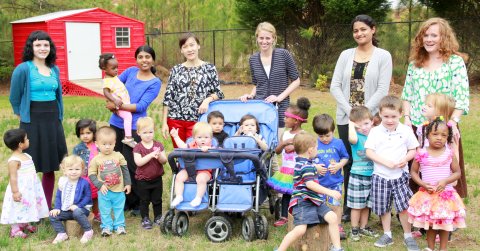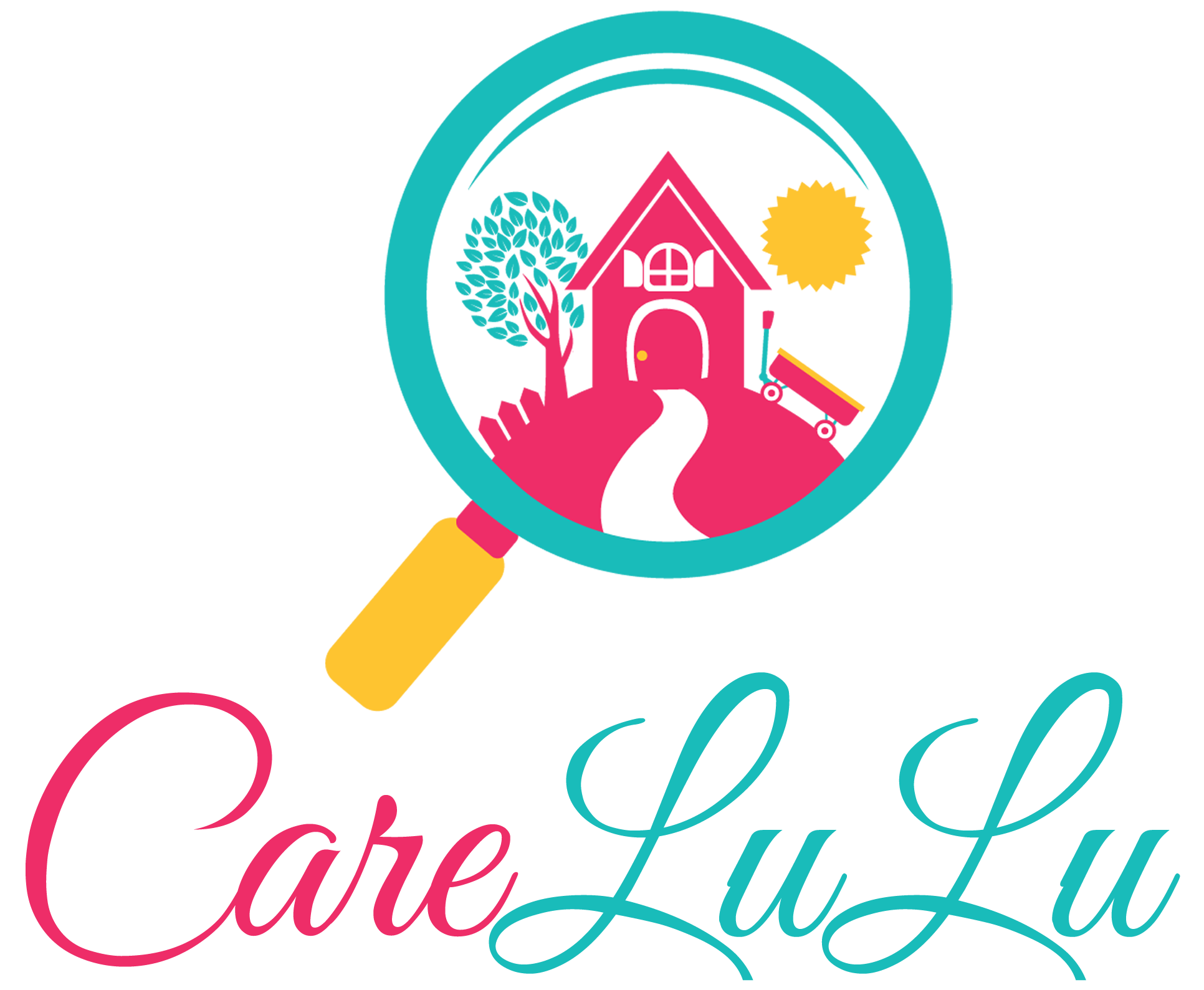
Stepping Stone Montessori, Cumming
Average Parent Rating
About
Lessons are introduced to the children based on the Guide’s observations for readiness. After the materials have been introduced, the child may choose the lesson independently as often as he/she likes, allowing repetition and mastery. This provides the opportunity for choice, problem solving, cooperation and independence. Montessori students are also given lessons on Grace and Courtesy to support their place in society. Respect for each other and the environment is apparent throughout the classroom community by both Guides and students. Montessori has been said to be a “Peace Education”.
Infant Program
Our Nido room is a peaceful, nurturing environment carefully designed and guided following Maria Montessori’s principles for these specific ages (0-16 months). We believe that the Montessori program should begin at birth because this is the age when the child feels the unconscious passion and desire to internalize and learn through his/her environment.
As Montessori teachers, we understand the amazing discovery made by Maria Montessori about the sensitive periods. The Sensitive Periods start during the first year of life. In order to support and protect these initial periods of time, we focus our lessons and our guidance on four main aspects of development:
Language: In the area of language the Nido environment provides stimulation by reading, singing, speaking slowly and clearly with precise words to the children.
Order: The Nido environment should provide order to foster the child’s optimal potential for independence, to help build their self-confidence, and to aid in memory retention.
Movement: The Nido room is where children’s development of gross motor skills are most apparent. The child should have motives for movement. The more the child moves the more the child will know and learn.
Refinement of the senses: In the Nido room stimulating the senses is one of the main focuses. We know and understand how powerful the children’s senses are, and for this reason we love to work with them individually. We focus on providing them with concrete experiences in which they can explore different colors, forms, textures and sounds.
Toddler Program:
Our Montessori Toddler environment supports the physical, cognitive, social and emotional development of each child. Toddlers strengthen speech and language development; also develop fine and gross motor skills as they explore self, family and the world in which they live.
Our Toddler environments prepare toddlers both for the Toddler and primary environment. The toddlers learn concentration, coordination, language skills, responsibility and respect—all of which prepare them well for a successful transition into the primary environment.
Practical Life: The practical life materials and exercises are designed to contribute to the development of both fine and gross motor skills and assist the child in building high self-esteem, self-control, independence and concentration.
Sensorial: The Sensorial materials help toddlers develop fine motor skills — as well as the organization and patterning skills inherent in math and language concepts. Sensorial activities challenge the child to match objects by size, shape, color, or solve simple puzzles. Toddlers enjoy sensorial exploration of water, sand, dirt, clay, textured objects, the smell of flowers and food, discriminating size, color, and sound.
Language: The most important language materials for a toddler are the materials and experiences in the child’s environment. Reinforcing the importance of verbal communication, speaking clearly, and supporting the child’s expanding vocabulary are a daily process in the toddler environment. For the toddler, written language is experienced through the adult’s oral reading and story time.
Music & Art: Music in the toddler environment is all about singing and movement. The toddlers are developing voices and learning rhythms, but all the children know is that they are having fun. The mission is to make music lessons as fun as possible so that the children will think of music as an enjoyable pastime. It is our goal to provide a rich and varied musical environment.
Grace and Courtesy: Grace and Courtesy lessons give the child the vocabulary, actions, and steps required for him to build his awareness and responsiveness of those around him. This in turn gives the child a better sense of orientation in his social structure.
Primary Program:
Our educators give our 3-6 year olds responsive, individualized attention to help them build their skills in these five important areas:
Practical Life: The exercises of Practical Life act as a natural bridge between the home and the school for children entering the primary environment. By participating in activities that they have seen at home many times over, children cultivate feelings of responsibility and love for themselves, others, and their environment. In addition, children develop greater coordination and motor skills, while the ability to concentrate naturally grows. There are four groups of Practical Life exercises: care of self, care of environment, grace and courtesy, and exercises of movement.
Sensorial: The sensorial area aids children in understanding, organizing, and categorizing the multitudes of sensorial stimulation they receive every day. Scientifically designed materials nourish the development of the child’s intellect in the way of reasoning, focusing attention, and stabilizing the mind. This self-motivated process of training the senses results in joy and delight, as well as, the growth of the consciousness. The Sensorial Area is like a passage from concrete thinking to abstraction. This does not come about through mathematical analysis or teaching, but through active manipulation, exploration, and repetition which leads to knowledge about an object. Through hands-on, sensory motor involvement, the child grows in the ability to understand ideas of concepts without a physical representation.
Language: Language development begins as soon as the child enters the Montessori environment. Through exercises of spoken language, children are given the keys to self-expression. In addition, they begin learning the phonetic sounds of the alphabet and building muscle memory to be able to write those sounds. Written expression of thought is experienced, often before a child is actually able to control a writing instrument, through use of the Movable Alphabet. This involves physical manipulation of letters into words, phrases, and sentences. The children’s natural, enthusiastic interest in their language is nourished through writing and reading exercises that provide the opportunity for movement and hands-on stimulation. As they are ready, older children in the environment will have the opportunity to experience a more in-depth study of language in the way of word function, grammar, sentence diagramming, and reading purely for the joy of it.Math:
Math: Maria Montessori studied the child’s natural propensity for mathematical concepts, and created materials specifically designed for building upon this innate ability. Children in a Montessori environment have the opportunity to experience mathematical ideas through a series of concrete, hands-on lessons which progress into more abstract ideas. Children begin counting quantities and recognizing numbers, and gradually progress into work with the Golden Beads. With this material, children experience addition, subtraction, multiplication, and division through a process of combining, taking away, and sharing beads. In time, with use of appropriate materials, their work with the four operations becomes more and more symbolic, and they begin recording that work on paper. Children also gain experience squaring and cubing using concrete representations. By nurturing the child’s natural mathematical mind, the Montessori Method inspires interest, joyful learning, and a deep understanding of mathematical concepts.
Cultural Study: Cultural study in a Montessori Environment is integrated throughout each day. Children are excited to extensively learn the names and locations of continents, countries, and states by using puzzle maps. In addition, through art, music, portfolios, and cultural celebrations, children form an awareness and appreciation of the diverse world in which they live.
Disclaimer: the licensing status was checked when this listing was created. We do our best to keep information up-to-date, but cannot guarantee that it is. You should verify the license/permit/registration status before enrolling in any child care program.
Contact This Program For Free
Center

Hours
6:30am - 6:30pm
Ages
6 weeks - 6 years
Kindergarten
Yes
Before School Care
Yes
After School Care
Yes
Accreditation
No
Meals Provided
Yes
Transportation
No
Facilities
• Fenced Facilities
• Playground
• Video Cameras
• Electronic Access
• Library
Other Child Care Options











